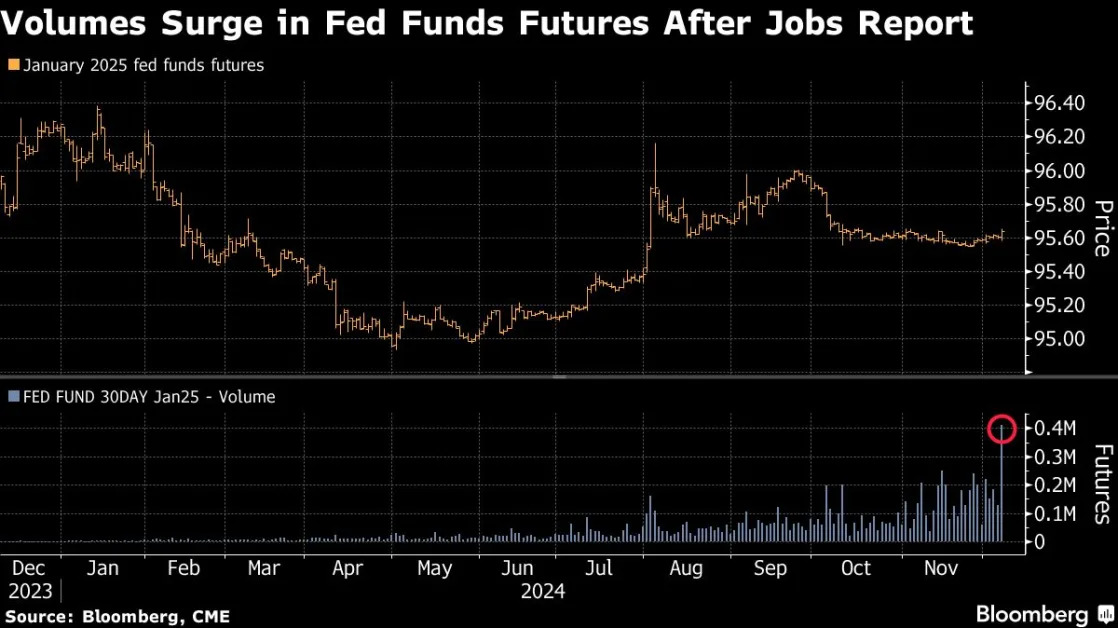(Bloomberg) -- Wagers in the fed funds futures market on Federal Reserve interest-rate cuts in both December and January have ballooned in size, aided by Morgan Stanley’s endorsement.
The number of January and February contracts in which traders have positions soared Friday as their prices climbed on record volume for each. Morgan Stanley strategists in a report said they’d recommended buying the February contract.
“We think investors should position for a higher market-implied probability of a 25bp rate cut at the January 29 FOMC meeting,” strategists led by Matthew Hornbach said in a note, referring to the central bank’s rate-setting Federal Open Market Committee.
Recommended ways to do that included buying the February fed funds contract and receiving the overnight index swap rate corresponding to the January meeting, they wrote.
Morgan Stanley’s economists expect the Fed to cut rates by a quarter point in both December and January, while investors still harbor doubt. The OIS market prices in about 20 basis points of easing for the Dec. 18 decision, or 80% odds of rate cut. That compares with about 64% before November jobs data released Friday ignited wagers on a rate cut this month.
January and February fed funds futures saw record trading volume Friday as buyers piled in. The 410,842 January contracts that changed hands eclipsed the 250,000-odd traded on Nov. 14, when Fed Chair Powell said the recent performance of the US economy had been “remarkably good,” giving central bankers room to lower interest rates at a careful pace.
Open interest in January the contract increased by about 7% to more than 500,000. For the February contract open interest increased by more than 3% to 318,000, also a record. Friday’s activity included a block trade of some 20,000 contracts at a price of 95.715.
Morgan Stanley’s recommendation was to buy at 95.71 or receive the OIS rate at 4.300%.
Potential catalysts this week for the market to more fully price in Fed rate cuts in December and January include November consumer and producer price index reports on Wednesday and Thursday.


